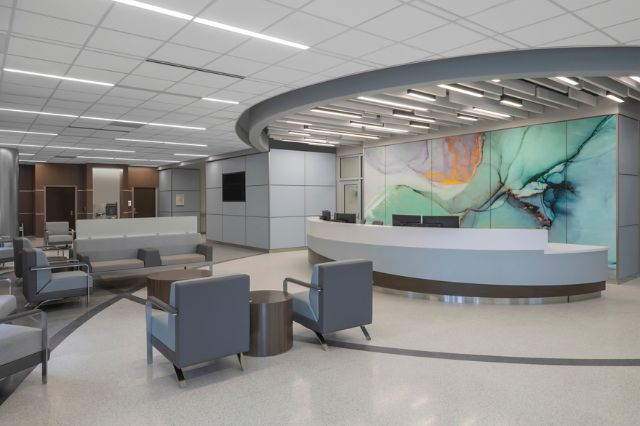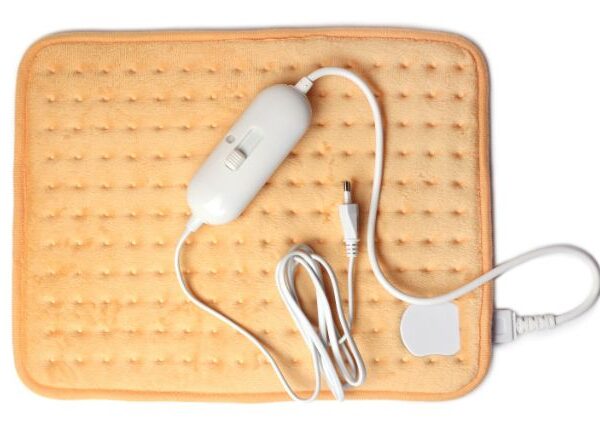In today’s fast-paced world, the healthcare industry is constantly evolving to meet the needs of patients and provide comfortable, efficient, and welcoming environments. One key aspect of a healthcare facility’s design that often gets overlooked is the reception area.
This is where patients and visitors form their first impressions, and it plays a crucial role in creating a positive atmosphere. Modular reception seating such as ones from UK Healthcare Chairs, is a versatile and practical solution that offers numerous advantages in modern healthcare settings.
In this article, we will explore these advantages in detail, from flexibility and aesthetics to durability and infection control.
Flexibility in Design and Layout
Adapting to Changing Needs
One of the most significant advantages of modular reception seating is its flexibility in design and layout. Healthcare facilities are dynamic environments that may need to adapt to changing circumstances, whether it’s accommodating more patients, rearranging the waiting area, or creating space for additional medical equipment. Modular seating allows for quick and easy adjustments to the seating arrangement, making it an ideal choice for healthcare settings that need to be versatile and accommodating.
Customization Options
Modular reception seating comes in various shapes, sizes, and styles, giving healthcare facilities the freedom to customize their reception area to match their unique aesthetic and functional requirements. Whether you prefer a contemporary and sleek design or a more traditional and inviting look, modular seating can be tailored to suit your preferences. This versatility ensures that your reception area aligns with your brand identity and creates a welcoming atmosphere for patients and visitors.
Maximizing Space Efficiency
Making the Most of Limited Space
Efficient use of space is crucial in healthcare settings, where every square foot matters. Modular reception seating is designed to maximize space efficiency. Unlike traditional fixed seating arrangements, modular seating can be easily reconfigured to optimize the use of available space. This adaptability allows healthcare facilities to make the most of their reception areas, ensuring that every corner is utilized effectively.
Accommodating Various Group Sizes
Healthcare facilities often need to accommodate varying group sizes, from individuals seeking medical advice to families accompanying patients. Modular reception seating can be arranged to suit different group sizes, ensuring that no one is left without a comfortable place to sit. Whether it’s a single-seat configuration or a larger seating arrangement, modular options offer the flexibility needed to accommodate diverse needs.
Durability and Longevity
Withstanding Heavy Use
In healthcare settings, reception areas experience heavy foot traffic and constant use. Traditional seating options may wear out quickly under such conditions. However, modular reception seating is designed with durability in mind. These pieces of furniture are built to withstand the rigors of healthcare environments, ensuring that they maintain their integrity and appearance over the long term.
Easy Maintenance
Keeping healthcare facilities clean and hygienic is a top priority. Modular reception seating is typically constructed with materials that are easy to clean and maintain, which is essential for infection control. Regular cleaning and maintenance ensure that the seating remains in pristine condition, enhancing the overall appearance of the reception area and promoting a sense of cleanliness and safety.
Patient Comfort and Well-Being
Providing Comfort During Wait Times
Long wait times in healthcare facilities can be stressful for patients and visitors. Modular reception seating is designed with patient comfort in mind. The various seating options can include ergonomic features, cushioning, and back support, all of which contribute to a more comfortable experience. Comfortable seating can help alleviate anxiety and stress, which is particularly important in healthcare settings.
Creating a Welcoming Atmosphere
The reception area sets the tone for the entire healthcare experience. A welcoming and comfortable environment can have a positive impact on patients’ well-being. Modular seating can be customized to create a warm and inviting atmosphere, helping patients and visitors feel more at ease. This positive first impression can lead to a more positive overall perception of the healthcare facility.
Infection Control and Hygiene
Easy Cleaning and Sanitization
Maintaining a high standard of cleanliness and infection control is paramount in healthcare settings. Modular reception seating is designed to facilitate easy cleaning and sanitization. The materials used are often resistant to stains and can be quickly wiped down with disinfectants. This makes it easier for healthcare staff to keep the reception area free from harmful pathogens and ensures a safer environment for everyone.
Reduced Risk of Contamination
Traditional seating with fixed upholstery can trap dirt, dust, and germs over time, increasing the risk of contamination. Modular seating, on the other hand, typically features removable cushions and covers that can be cleaned or replaced as needed. This reduces the risk of hidden contaminants and contributes to a more hygienic environment.
Cost-Efficiency
Long-Term Investment
While the initial cost of modular reception seating may be higher than traditional options, it proves to be a cost-effective long-term investment. Its durability and easy maintenance mean that healthcare facilities won’t need to replace seating as frequently. Over time, this can lead to significant cost savings, making it a financially wise choice for healthcare providers.
Versatile and Adaptable
The adaptability of modular reception seating also contributes to cost-efficiency. As healthcare facilities evolve and change, modular seating can be reconfigured rather than replaced, reducing the need for costly renovations or the purchase of new furniture. This versatility ensures that the seating continues to meet the changing needs of the facility.
Conclusion
In modern healthcare settings, the reception area serves as the gateway to a patient’s experience. The advantages of modular reception seating are numerous and significant, making it an excellent choice for healthcare facilities aiming to provide a flexible, welcoming, and efficient environment.
From its adaptability and customization options to its durability, patient comfort, and infection control features, modular seating addresses the unique challenges of healthcare settings while also proving to be a cost-effective investment. By choosing modular reception seating, healthcare providers can create a positive first impression, enhance patient well-being, and maintain a clean and hygienic reception area that meets the demands of today’s healthcare landscape.






